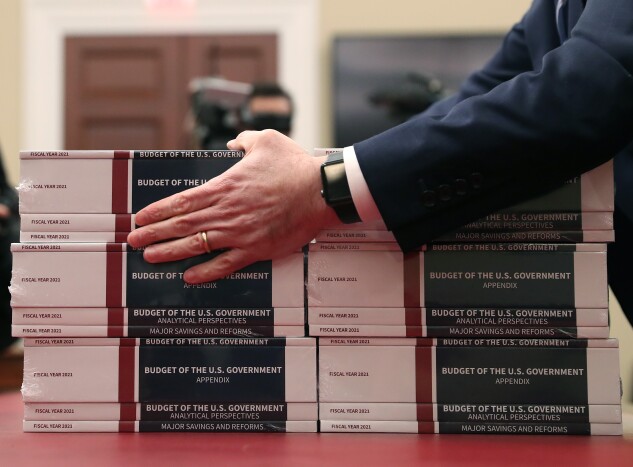Monday morning musings for workplace watchers
White House Fast-tracks Reg Cuts | DOL’s Push to Rescind Rules
Robert Iafolla: The Trump administration is trying to accelerate plans to cut regulations at workplace agencies and other parts of the federal government with new guidance that views rescinding rules as fundamentally different than creating new ones.
The White House’s regulations czar Jeffrey Clark authorized agencies in a memo last week to “streamline their compliance” with several rulemaking requirements from past executive orders because they “tend to not be as relevant when agencies deregulate.”
The memo from Clark, acting chief of the Office of Information and Regulatory Affairs, imposed 28-day deadlines for his office to examine standard rule rescissions and 14-day deadlines for purportedly unlawful rules. OIRA’s standard timeline for rulemaking review maxes out at 90 days.
The OIRA memo shows the White House’s desire for a greater administration-wide focus on rescinding federal rules. The degree to which agencies intensify their deregulatory efforts when the ongoing government shutdown ends will show the impact of the directive.
Clark’s instructions for agencies to cut corners to ease deregulation advises skipping mandates from past executive orders, such as those that call for consulting with state and local governments, as well as tribes, about the impact of rulemakings.
Agencies should also dispense with analyses that past presidential directives required for regulatory action that could have disproportionate effects on the energy supply and small businesses.
Clark doubled down on President Donald Trump’s April memo telling agencies to review the legality of existing regulations and dump rules that agencies deem unlawful—without going through the formal rulemaking procedure.
“To date, agencies do not appear to be fully maximizing their energy in carrying out these directives,” he said.
The memo recognized that agencies might have policy reasons to nuke rules that they also determine to be unlawful. In those situations, it said agencies should use interim final rules to nullify existing regulations first, then gather and assess responses to their policy justifications later.
When developing rationales for killing rules, agencies should consider the special and particular benefits that deregulation offers, the memo said. Those include boosting the “scope of private freedom” and codifying agency enforcement priorities.
“Deregulation has important, unique impacts that could be given weight in decision making, which agencies often do not consider,” Clark said.
Parker Purifoy: The Office of Management and Budget guidance could help boost the pace of deregulation at the Department of Labor, which has already rescinded dozens of rules this year.
The DOL this year has placed over 60 proposed or final rules on the chopping block, including those regulating minimum wage and overtime eligibility for certain health aides, anti-discrimination requirements for apprenticeship, and the underpinning of the Office of Federal Contract Compliance Programs, according to a Bloomberg Law analysis of regulatory filings.
The overhaul marked the arrival of Trump’s “massive deregulation initiative” at the agency that enforces dozens of laws governing the workplace, though these efforts could be subject to legal challenges.
OMB’s guidance gives the DOL another tool to speed up the deregulatory work, after it has already sought to invalidate Biden-era rules through unconventional means.
The DOL said in May that it would no longer enforce its independent contractor rule as it navigated at least five lawsuits challenging the Biden-era policy. Some of the litigation has now been put in abeyance while the department reconsiders the rule, according to court documents.
The department likewise said in June that its rule to protect workplace union organizing by H-2A visa holders would also meet the same fate, along with its Davis-Bacon prevailing wage update, and ESG retirement investing rules.
Just last month the DOL scrapped its proposal to change restrictions for the hours minors can work and what industries they can work in, although the details of the proposal were never publicly released.
The effort comes from Trump’s January executive order directing agencies to repeal 10 regulations or guidance documents for every new one issued, unless prohibited by law, and that the cost of new regulations and repealed regulations be “significantly less than zero.” The administration’s lawyers are also seeking to undermine its own agencies’ enforcement authority in the courts.
This summer’s deregulatory measures also included more than two dozen policies at the Occupational Safety and Health Administration and the Mine Safety and Health Administration targeting rules that require employers to record work-related musculoskeletal disorders and govern miners’ exposure to diesel particulate matter.
Both agencies maintained in their June notices that changing or terminating the rules would preserve the same level of protection for workers.
The measures drew pushback from members of Congress, including Rep. Bobby Scott (D-Va.), the ranking member of the House Education and the Workforce Committee.
To contact the reporters on this story:
To contact the editor responsible for this story:
Learn more about Bloomberg Law or Log In to keep reading:
See Breaking News in Context
Bloomberg Law provides trusted coverage of current events enhanced with legal analysis.
Already a subscriber?
Log in to keep reading or access research tools and resources.


